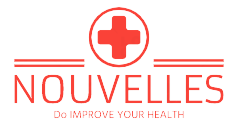The Power of Proper Nutrition: How Eating Right Can Transform Your Health
The Power of Proper Nutrition: How Eating Right Can Transform Your Health
Proper nutrition is essential for maintaining good health and preventing disease. The foods we eat have a direct impact on our overall well-being, and making healthy choices can make a significant difference in how we feel and function on a daily basis. In this article, we will explore the ways in which proper nutrition can transform your health and the specific benefits it provides. From enhancing our immune system to improving our mental health and everything in between, the power of proper nutrition cannot be emphasized enough.
Benefits of Proper Nutrition
When we consume a balanced diet that is rich in nutrients, we provide our bodies with the fuel they need to function optimally. Proper nutrition offers a wide range of benefits, including:
Improved Energy Levels
Consuming a diet that is rich in vitamins, minerals, and other essential nutrients can significantly boost your energy levels. Nutrient-dense foods provide the body with the energy it needs to carry out its daily functions, keeping you feeling energized and alert throughout the day.
Enhanced Immune Function
A well-balanced diet can help strengthen the immune system, making it easier for the body to fight off illness and infection. Nutrients such as vitamin C, vitamin D, and zinc play a crucial role in supporting the immune system and protecting the body from harm.
Improved Mental Health
Proper nutrition has been linked to improved mental health, with certain nutrients playing a key role in mood regulation and cognitive function. Research has shown that a diet high in omega-3 fatty acids, for example, can help reduce the risk of depression and anxiety.
Weight Management
Eating a balanced diet that is low in processed foods and high in whole, nutrient-dense foods can help with weight management. Proper nutrition can help regulate appetite, promote feelings of fullness, and support a healthy metabolism, making it easier to maintain a healthy weight.
Reduced Risk of Chronic Disease
A diet that is rich in fruits, vegetables, whole grains, lean proteins, and healthy fats can help lower the risk of developing chronic diseases such as heart disease, diabetes, and certain types of cancer. By providing the body with the nutrients it needs to function properly, proper nutrition can help prevent the onset of these conditions.
How to Eat Right
So, how can you ensure that you are eating right and reaping the benefits of proper nutrition? Here are a few tips to help you get started:
Focus on Whole, Nutrient-Dense Foods
Aim to consume a variety of whole foods, including fruits, vegetables, whole grains, lean proteins, and healthy fats. These foods are rich in essential nutrients and provide the body with the fuel it needs to function properly.
Limit Processed Foods and Added Sugars
Processed foods and added sugars offer very little in terms of nutritional value and can contribute to weight gain and chronic disease. Limit your intake of these foods and focus on whole, natural options instead.
Stay Hydrated
Drinking plenty of water is essential for maintaining good health and supporting proper bodily functions. Aim to drink at least eight glasses of water per day, or more if you are physically active or exposed to hot temperatures.
Listen to Your Body
Pay attention to your body’s hunger and fullness cues, and eat when you are hungry and stop when you are satisfied. This can help prevent overeating and promote a healthy relationship with food.
Seek Professional Help if Needed
If you are struggling to make healthy choices or have specific dietary needs, consider seeking support from a registered dietitian or nutritionist. These professionals can provide personalized guidance and help you develop a nutrition plan that meets your individual needs.
FAQs
What are the key components of a healthy diet?
A healthy diet should include a variety of fruits, vegetables, whole grains, lean proteins, and healthy fats. These foods provide essential nutrients such as vitamins, minerals, and antioxidants that support overall health and well-being.
How does proper nutrition impact mental health?
Proper nutrition can have a significant impact on mental health, with certain nutrients playing a key role in mood regulation and cognitive function. Research has shown that a diet high in omega-3 fatty acids, for example, can help reduce the risk of depression and anxiety.
What role does hydration play in proper nutrition?
Staying hydrated is crucial for maintaining good health and supporting proper bodily functions. Drinking plenty of water can help regulate body temperature, support digestion, and promote overall well-being.
Conclusion
The power of proper nutrition cannot be overstated. By making healthy food choices and prioritizing nutrient-dense options, you can significantly improve your overall health and well-being. From boosting energy levels to enhancing immune function and supporting mental health, the benefits of proper nutrition are vast. By focusing on whole, natural foods and making conscious choices about what you eat, you can transform your health and live your best life.
Remember, proper nutrition is a key component of a healthy lifestyle, and making small changes to your diet can yield big results. By prioritizing your health and well-being and making informed choices about the foods you consume, you can enjoy the many benefits that proper nutrition has to offer.
So, take the time to nourish your body with the nutrients it needs and reap the rewards of good health and vitality.
External Site Links
For additional information on proper nutrition and its impact on health, please visit the following sites:
- Harvard T.H. Chan School of Public Health – The Nutrition Source
- Academy of Nutrition and Dietetics – EatRight.org
- Nutrition.gov – National Institute of Food and Agriculture
References
1. Office of Disease Prevention and Health Promotion. (2021). Nutrition and Healthy Eating. Retrieved from https://health.gov/our-work/food-nutrition
2. University of Rochester Medical Center. (n.d.). The Benefits of Eating Healthy Foods. Retrieved from https://www.urmc.rochester.edu/encyclopedia/content.aspx?ContentTypeID=1&ContentID=3039
About the Author
This article was written by [Author’s Name], a certified nutritionist with a passion for helping others achieve optimal health through proper nutrition. [Author’s Name] has a wealth of experience in the field of nutrition and is dedicated to sharing the benefits of healthy eating with others.



